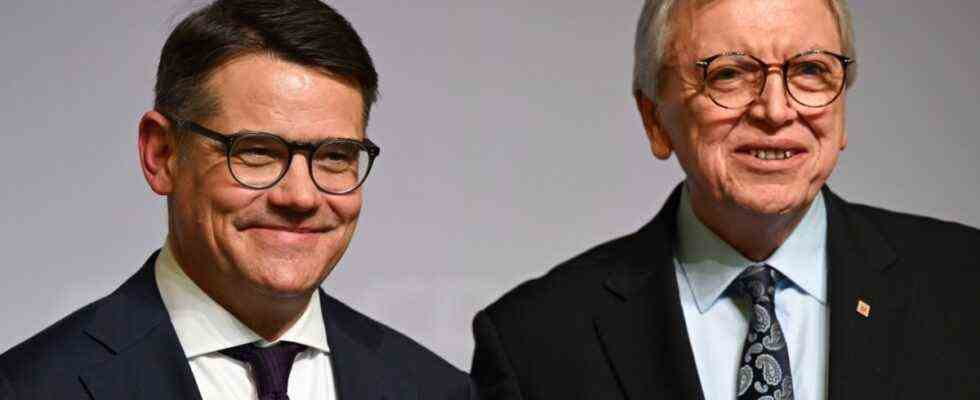The first breaking news came on Friday morning, it was said that Volker Bouffier would resign from his position as Prime Minister of Hesse at the end of May. A few hours later, at the traditional Künzeller meeting of the Hessian CDU, he explained that it was a “fundamental political decision for our party and our country,” a turning point that he had prepared in a “very careful process.”
The decision ends a debate that has been going on in Hesse for a long time. It began after the state elections in 2018, when the CDU stopped at 27 percent. Eleven percent less than in the previous election. It went further when Volker Bouffier, together with Wolfgang Schäuble, made Armin Laschet a candidate for chancellor, and he did not become chancellor, and it reached its climax when the first people began to calculate how old Bouffier would be at the next state election without being asked: 71 years. Doesn’t the CDU need to renew and rejuvenate itself? And that fast?
But it was always clear that it would be Volker Bouffier who would want to decide when his successor would be. Bouffier, who after the terrorist attacks on September 11, 2001, as Minister of the Interior in Hesse, had the police law changed and introduced dragnet searches, Bouffier, who had long done a lot to ensure that they called him the “black sheriff”. In recent years he has become more moderate, for example when he supported Angela Merkel’s course in the dispute over the refugees. Bouffier, Prime Minister for almost twelve years. After such a long time, it is necessary to “clarify for yourself and the public whether you should, can and want to continue to hold the office”. And further: “Everything has its time. The current time is the right one.”
And so on Friday there was a second man next to him, Boris Rhein, 50 years old, previously President of the State Parliament in Wiesbaden. Bouffier had proposed him to the party leadership as his successor, both for the office of prime minister and for that of head of state, and they had voted unanimously for him. But who is the man who is to follow him?
“Black Sheriff” was called Bouffier
Boris Rhein was already in the Junge Union when he graduated from high school. He studied law in Frankfurt, worked as a lawyer and worked his way up in the CDU. In 2010 he became Hessian Minister of the Interior, also at that time as Bouffier’s successor, then Minister of Science in 2014, and President of the State Parliament in 2018. Rhein is considered conservative, just as the Hessian CDU is conservative, and perhaps the only political shortcoming is this: in 2011 he tried to become mayor of Frankfurt, but lost in a runoff against Peter Feldmann (SPD).
On Friday, Rhein neither spared praise for Volker Bouffier nor words of joy. The Hessian CDU succeeded in a “transition in friendship”, the unanimous decision a “basis for the election success in 2023”. Then there are state elections in Hesse.
But first, at the end of May, Boris Rhein himself has to be elected prime minister by the Hessian state parliament, and the government made up of the CDU and the Greens only has a majority of one vote. So he needs unity again, now also beyond party lines. Within the very conservative Hessian CDU, Rhein is considered to be medium-conservative, and therefore compatible – or at least more compatible than many other candidates who have been traded as possible successors in recent weeks.
If Rhein should become prime minister, he will face difficult tasks: not only that he has to keep the alliance of the CDU and the Greens together. In the last polls from last October, his party is level with the Greens at 20 percentage points, the SPD has 26 percentage points for the first time. In other words, the CDU has to catch up.

